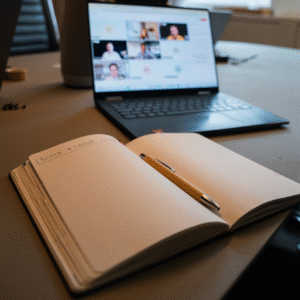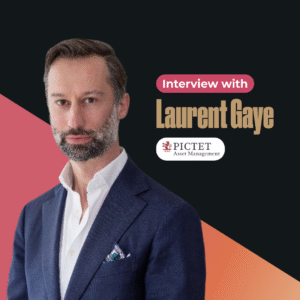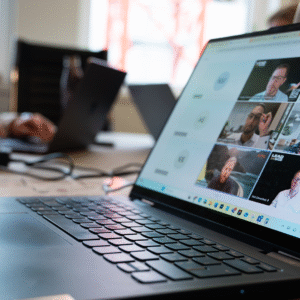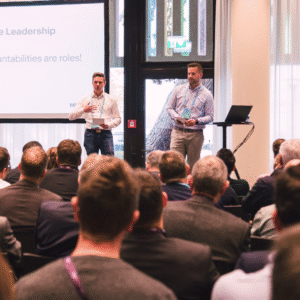In uncertain times, such as those currently experienced by Swiss companies as well, the temptation to apply an authoritarian leadership style is an obvious response to fear and anxiety. It relies on micromanagement and the perceived control of employees, as well as short-term, primarily financially focused goals to overcome the crisis.
However, this seemingly proven traditional leadership style is not the solution best suited for today’s challenges, says leadership researcher professor Susan Goldsworthy, PhD. She teaches leadership, communications, and organizational change at the International Institute for Management Development (IMD) in Lausanne and will deliver the keynote address at the Lead26 leadership conference on November 19, 2025 in Zurich.
Flow: Proper breathing and body care
Although leadership is an intellectual concept, it is implemented and executed by people in their physical dimension. In Prof. Goldsworthy’s view, this requires a “flow” in how they manage their physical and psychological state. “Most people breathe through their mouths and too shallowly as well. This gives them very little space for an appropriate physical response when under stress,” is her observation. “Many companies reward focus on work, however, this is not sustainable if it comes at the expense of one’s health and wellbeing.” Goldsworthy, who was a finalist at the 1976 Montreal Olympic Games, recommends daily breathing practices, frequent exercise, thoughtful nutrition and sufficient rest for leaders to remain healthy and lead sustainability.
Intent: Leading with awareness and agency
Even for leaders, day-to-day business is often determined by external circumstances and perceived operational urgency. Prof. Susan Goldsworthy recommends countering this with a personal, self-determined agenda: Intent is grounded in one’s own awareness and agency. “It is easy to forget that we always have a choice, even under the most complex and downright difficult circumstances,” is her conviction. “It begins with the choices we are making for ourselves which may inspire others and, later on, even change our overall environment.” She recommends leaders increase the awareness of the choices they are making, and how they might be conforming to their past conditioning and patterns (e.g. with the help of a mentor or coach). Then to consciously choose what actions they will take.
Trust: Interest in connection and meaningful purpose
Any productive, long-term collaboration requires trust, even though the professional environment is often characterized by pressure to perform and stiff competition. However, this does not have to lead to undermining behaviours or even sabotaging others for short-term gains. Prof. Goldsworthy stresses the importance of trust in how we connect and give meaning: “It begins with trust in ourselves, extends to trust in others and, when we see the big picture, trust in the universe.” This requires the willingness to be open, displaying vulnerability, interest in others and in meaningful relationships. It also involves the belief in some purpose, meaning that is bigger than ourselves. One clear shift needed is, according to Prof. Goldsworthy, the switch from making assumptions and acting as if we already know everything to exploring how we connect. This involves cultivating curious questioning, observing before judging, and listening as much as talking.
In her keynote speech at Lead26, Prof. Susan Goldsworthy will detail the importance and practical application of flow, intent, and trust: “A shift to a ‘power-with’ leadership style requires courage, but it is necessary to thrive in a changed environment.” Traditional, ‘power-over’ leadership styles may generate short-term efficiency, but they suppress innovation, creativity and collaboration. They also drain curiosity, breed disengagement and contribute to burnout. “Too often, under pressure, we respond by tightening mandates when what is needed is actually relational repair,” she says. “When fear runs the room, adaptability collapses just when volatility demands it. When we can show up more fully as ourselves, in all our humanity, then the magic of sustainable, high performance can emerge.”




